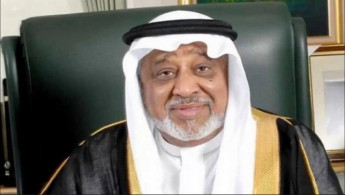Saudi Arabia releases Ethiopia-born billionaire Amoudi
Saudi authorities have released an Ethiopian-born Saudi billionaire more than 14 months after he was detained during a vast crackdown on leading business and royal figures, which was presented officially as an anti-corruption drive.
The Ethiopian prime minister's office on Sunday confirmed the release of Mohammed al-Amoudi, who is the second richest businessmen in the kingdom.
"Amoudi has been released from prison in Saudi Arabia," Premier Abiy Ahmed's office tweeted.
Ahmed last year urged Crown Prince Mohammed bin Salman to release the 72-year-old businessman.
Amoudi, whose fortune was estimated by Forbes in 2017 at $8.3 billion, was arrested in November 2017 in an unprecedented Saudi purge that included the arrests of princes, ministers and businessmen for alleged corruption.
He is a Saudi citizen born of a Saudi father and an Ethiopian mother. He owns companies operating in agriculture, energy and construction in several countries.
Analyst Romain Calvary wrote last year that Amoudi was arrested to send a warning to local businessmen.
"The message was: Business should privilege certain networks and in no circumstances benefit those who might nourish seditious aims," Calvary said.
"Amoudi was the ideal target to push this message home. His connections are well known, he has no tribal support, and his economic activity inside Saudi Arabia is practically non-existent," he added.
Critics of Crown Prince Mohammed bin Salman say the arrests were an attempt to push aside potential rivals and consolidate his power.
Authorities in the oil-rich kingdom have concluded financial "arrangements" in exchange for the release of most of the people arrested, which critics of the crown prince describe as a shake-down.
Human Rights Watch likened the mass arrests to "extortion" and said alleged mistreatment was a "serious blow to Prince Mohammed's claims to be a modernising reformist".





 Follow the Middle East's top stories in English at The New Arab on Google News
Follow the Middle East's top stories in English at The New Arab on Google News
![Netanyahu furiously denounced the ICC [Getty]](/sites/default/files/styles/image_330x185/public/2024-11/GettyImages-2169352575.jpg?h=199d8c1f&itok=-vRiruf5)
![Both Hamas and the Palestinian Authority welcomed the ICC arrest warrants [Getty]](/sites/default/files/styles/image_330x185/public/2024-11/GettyImages-2178351173.jpg?h=199d8c1f&itok=TV858iVg)
